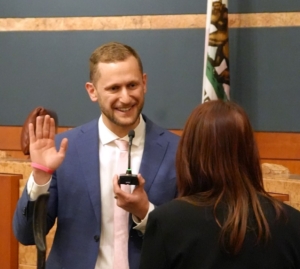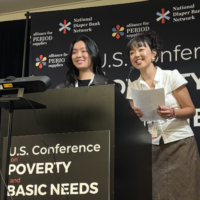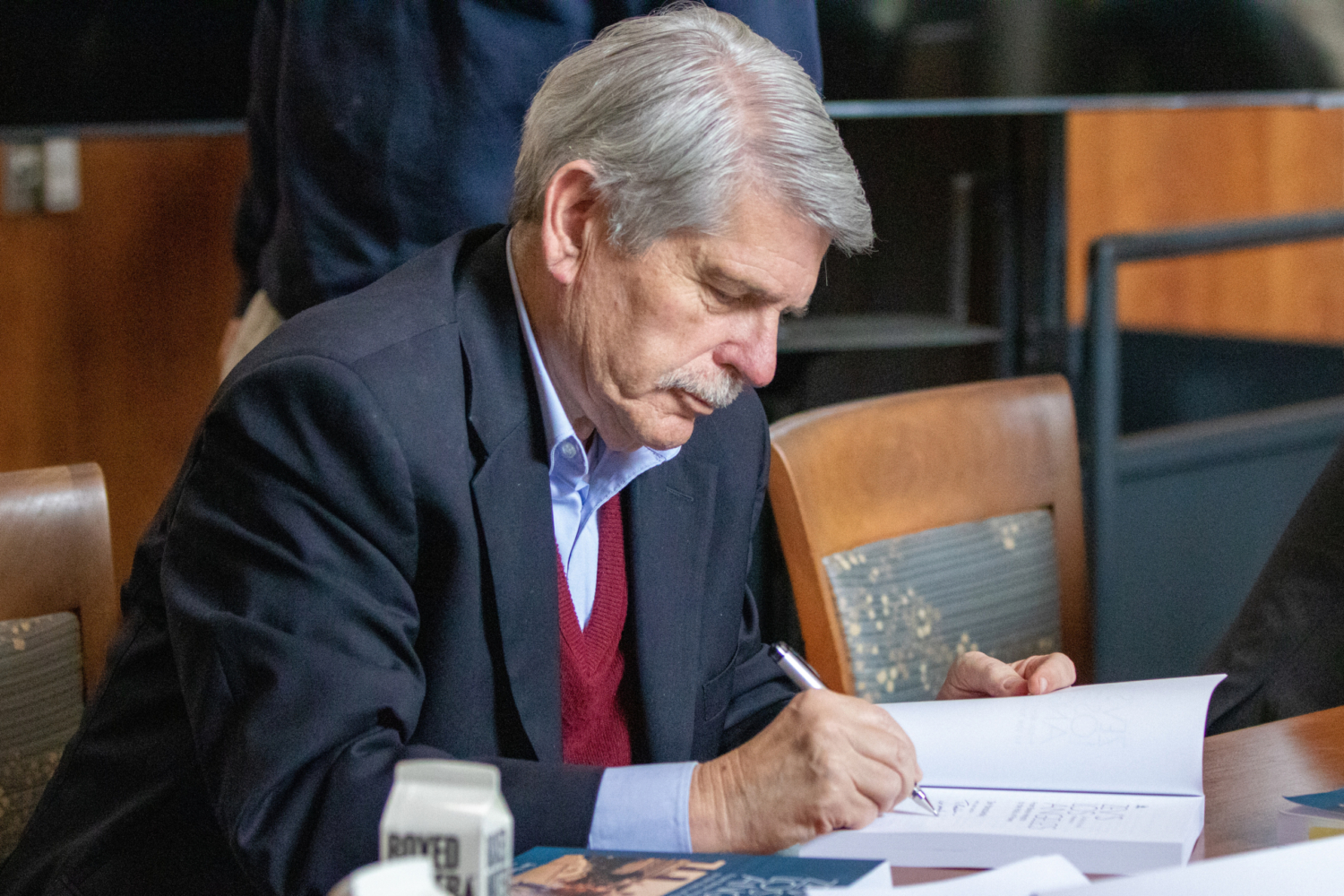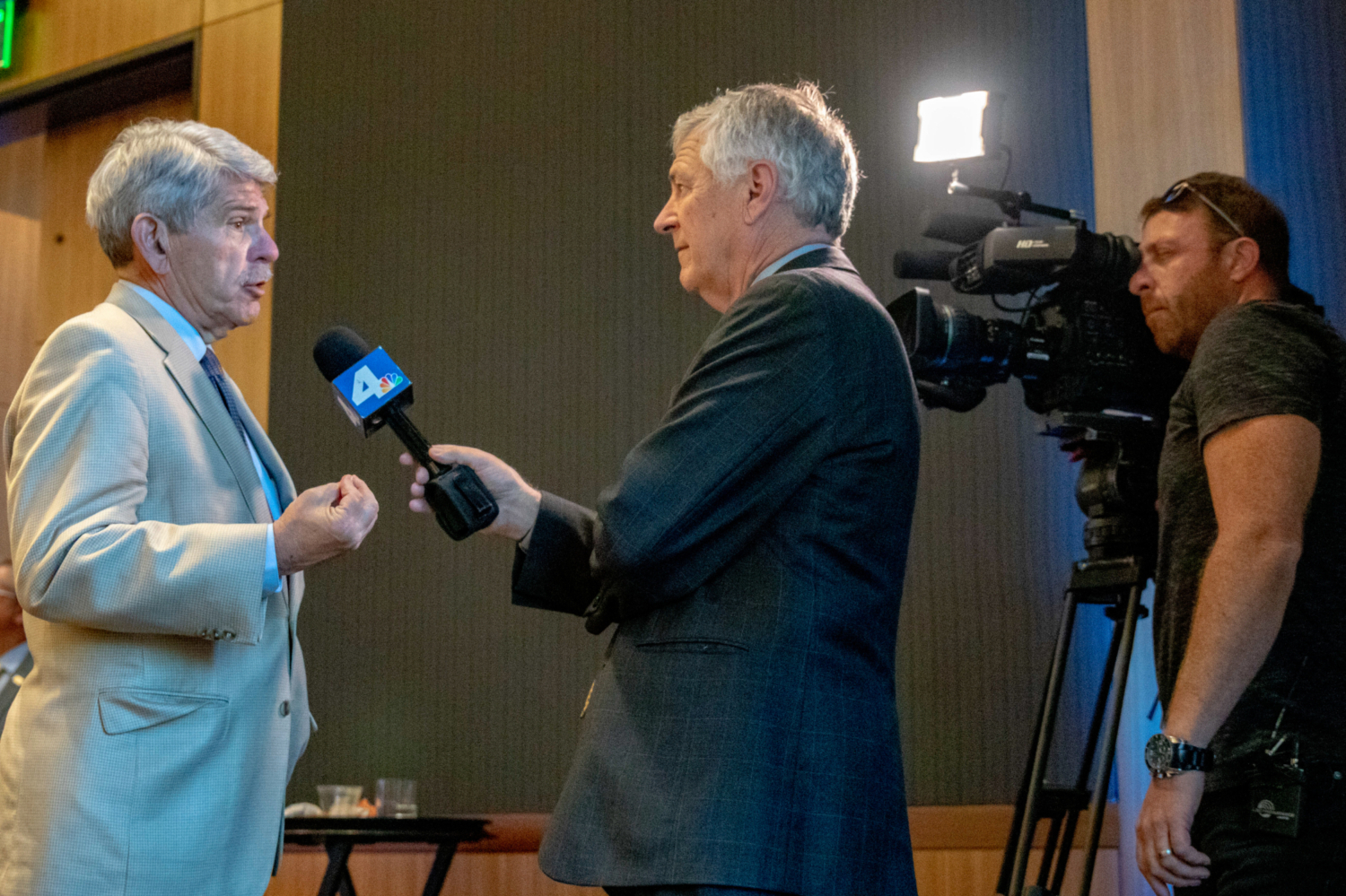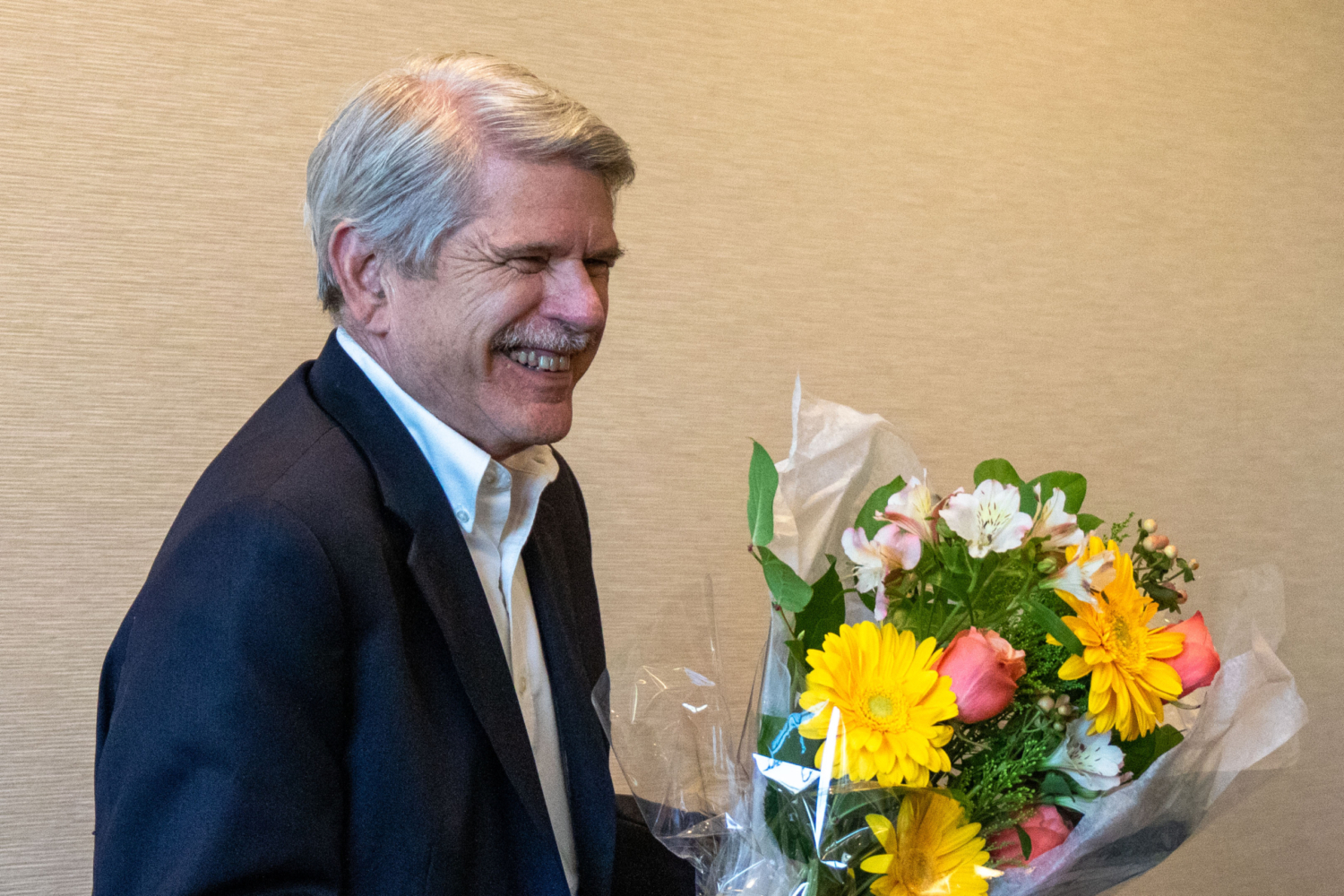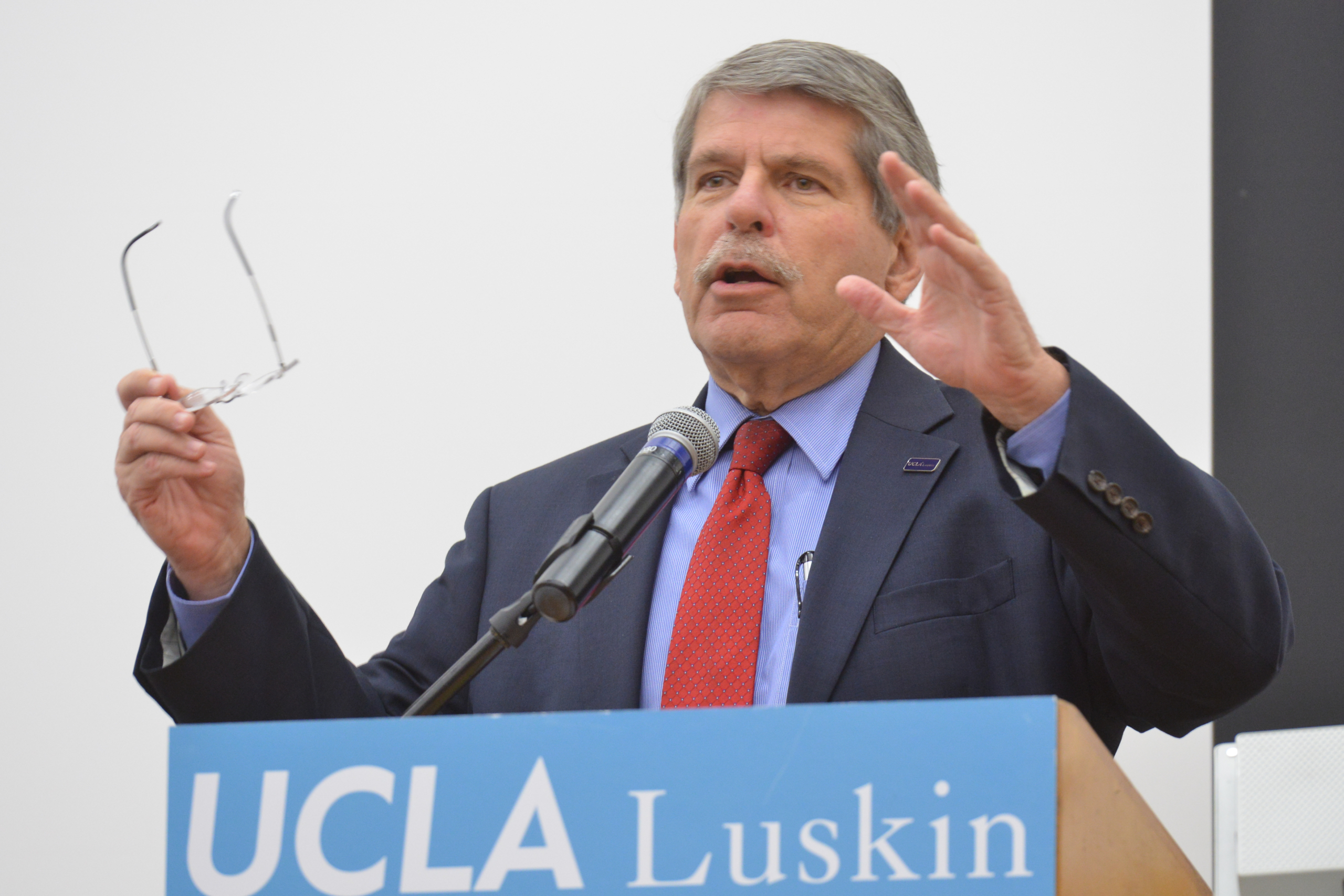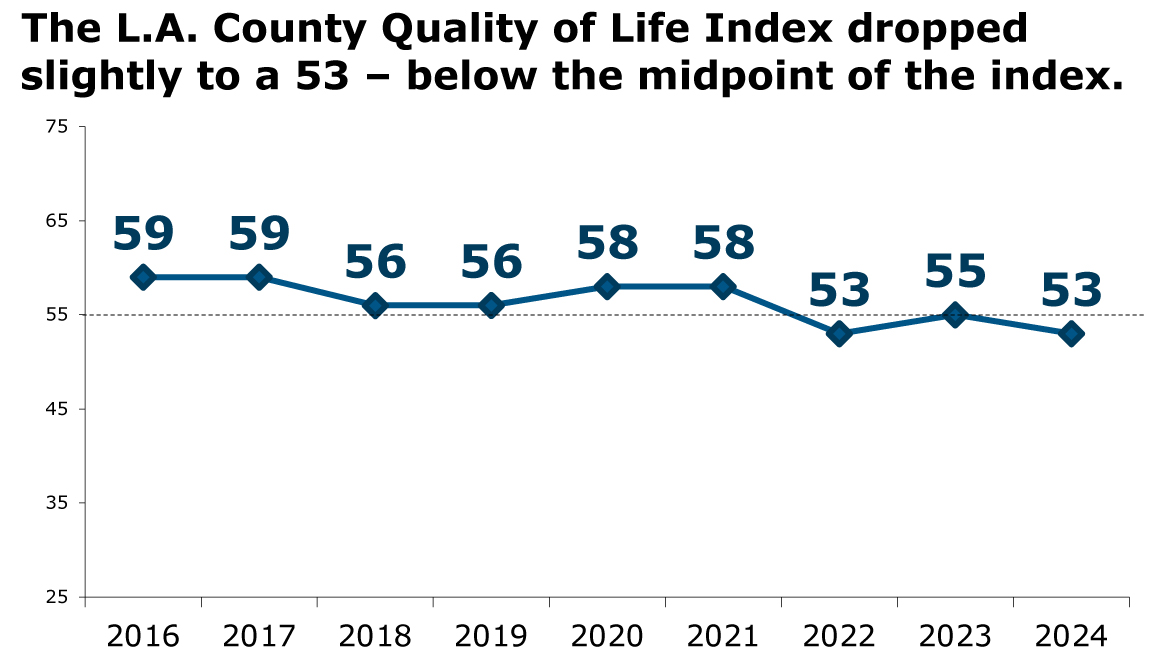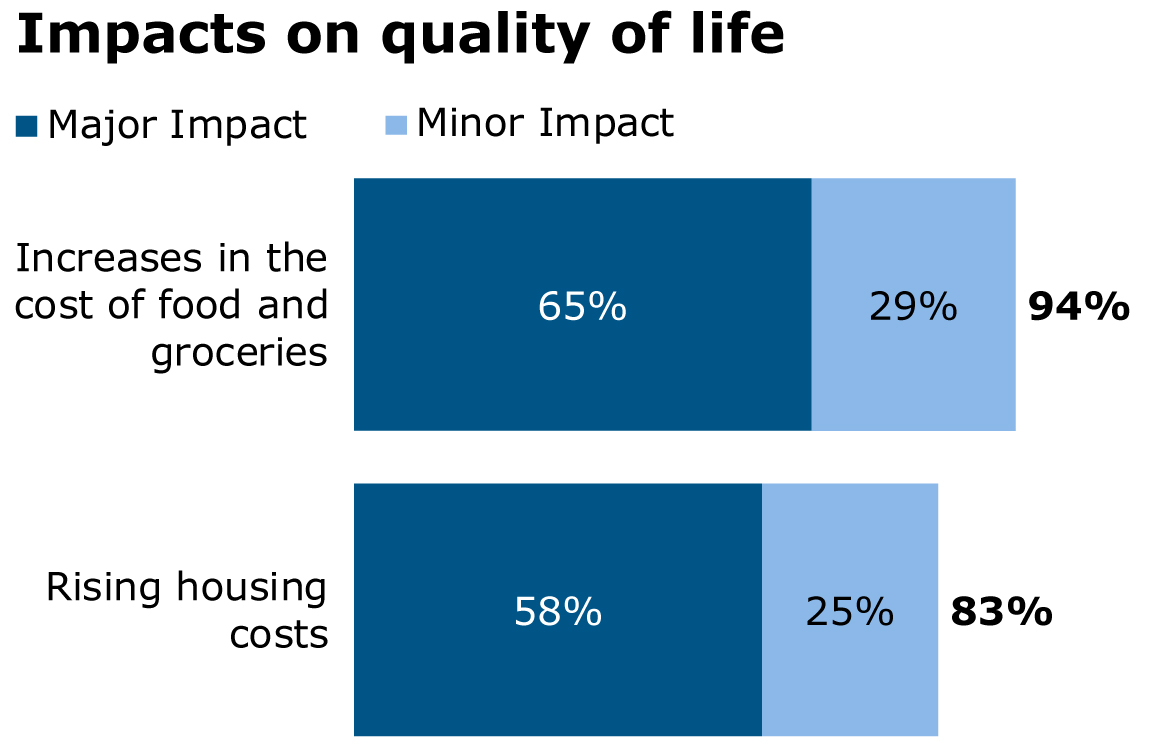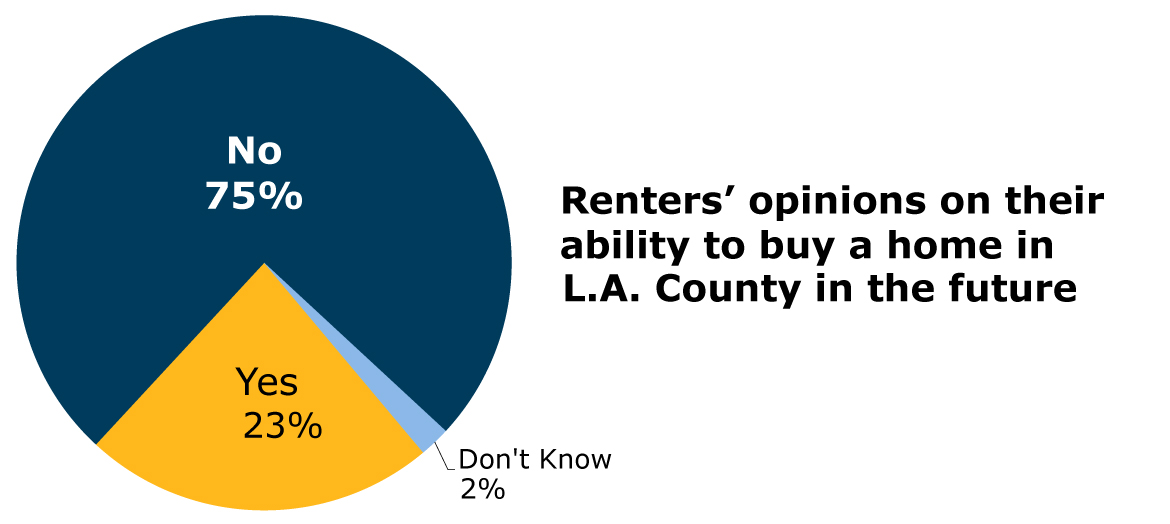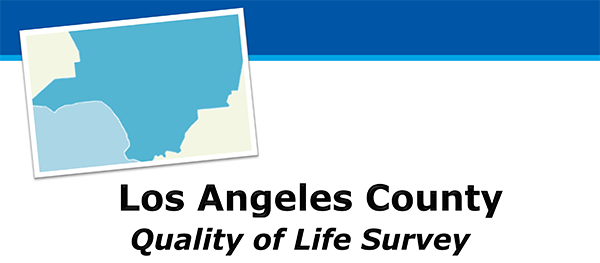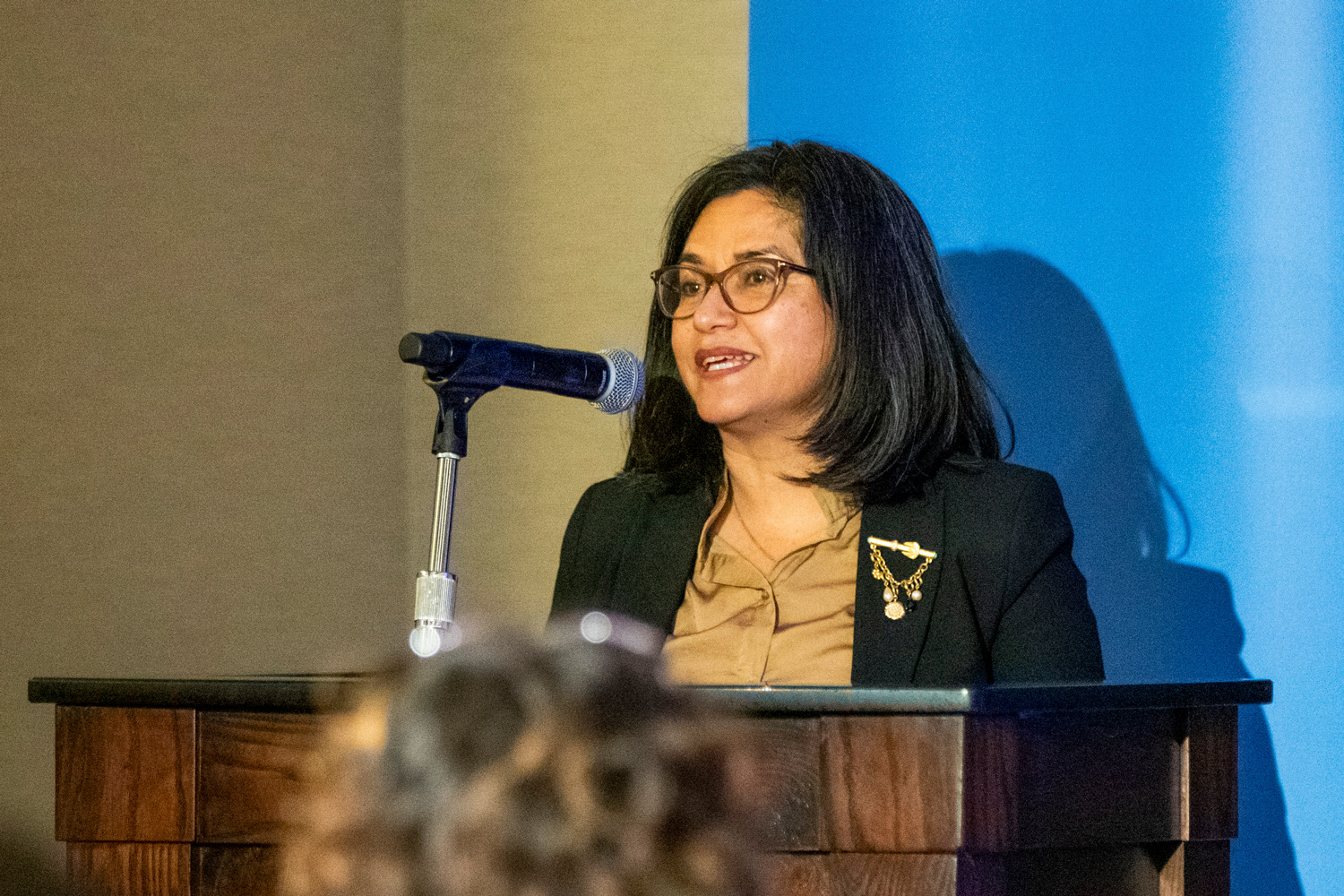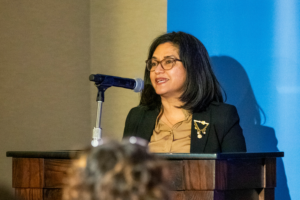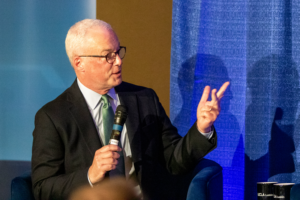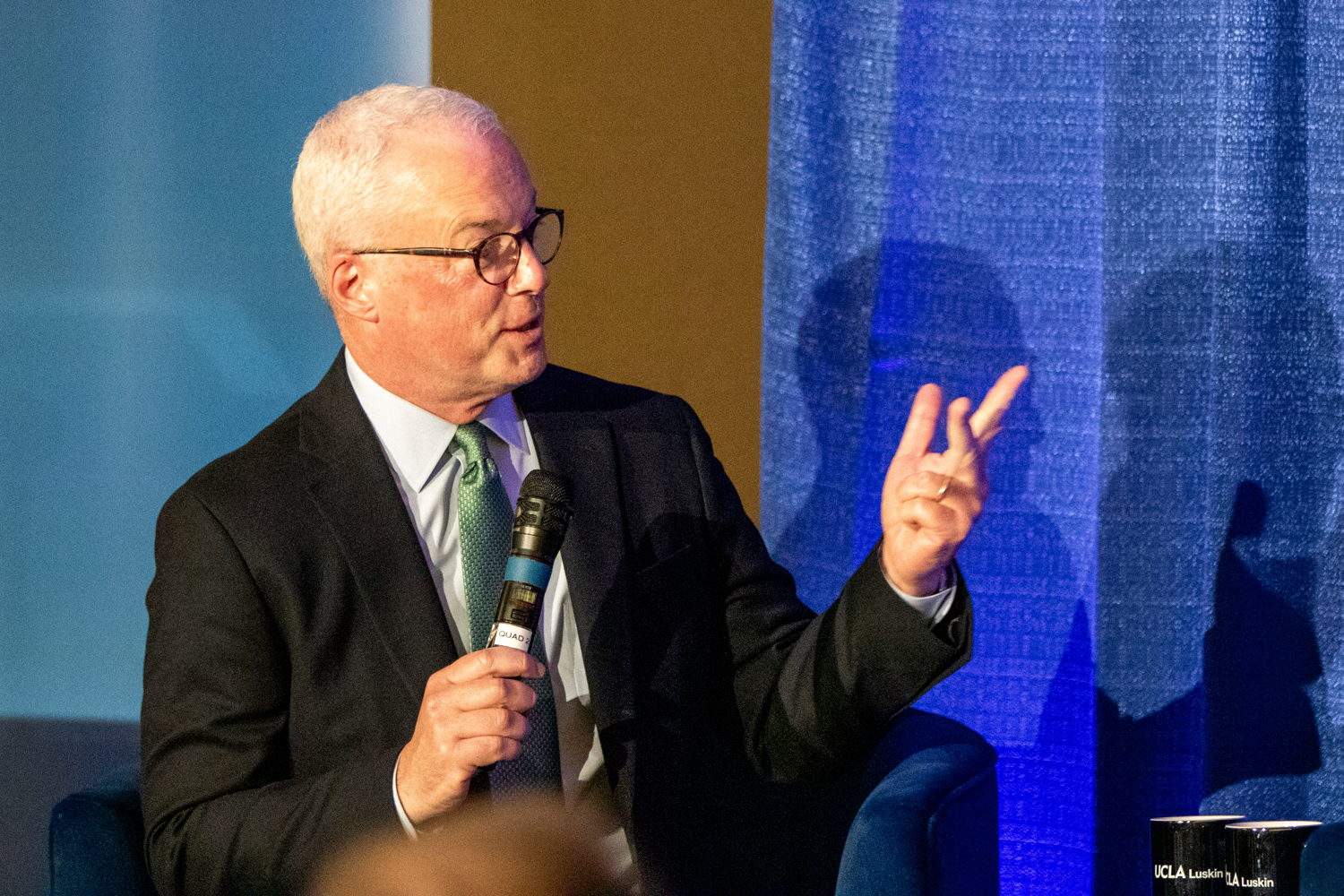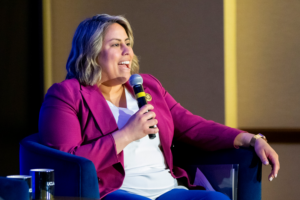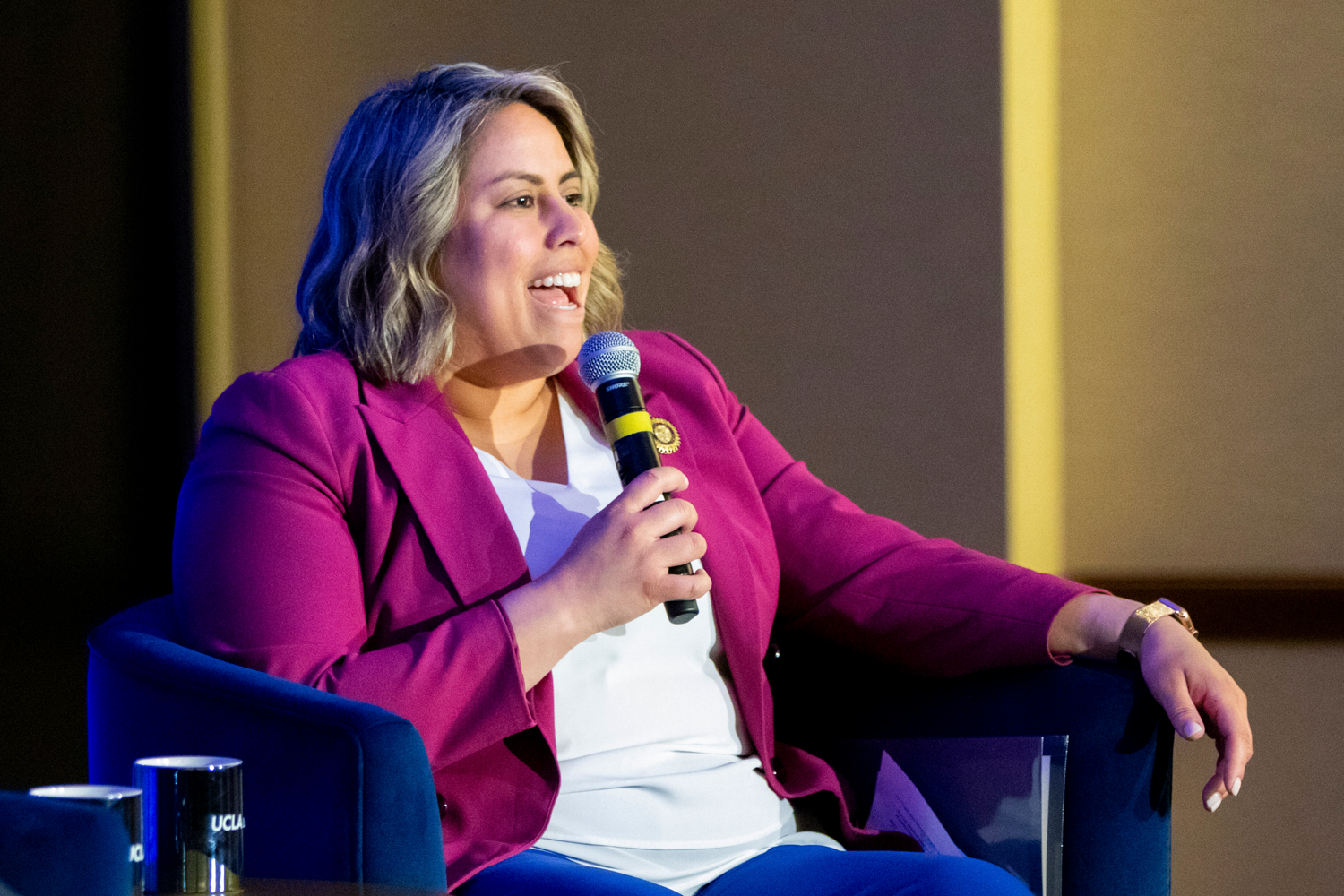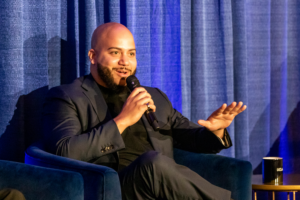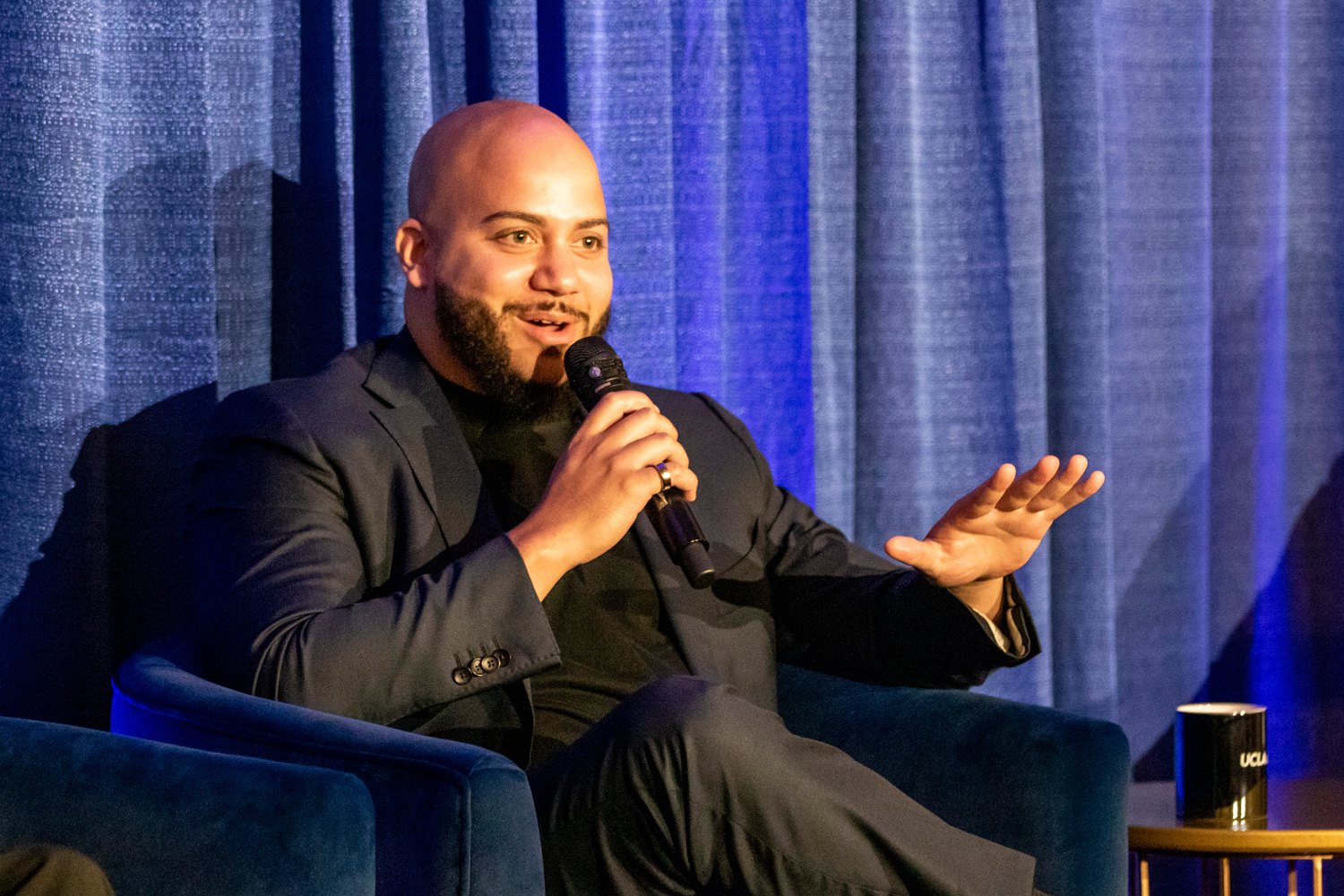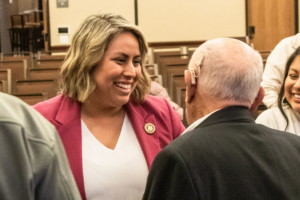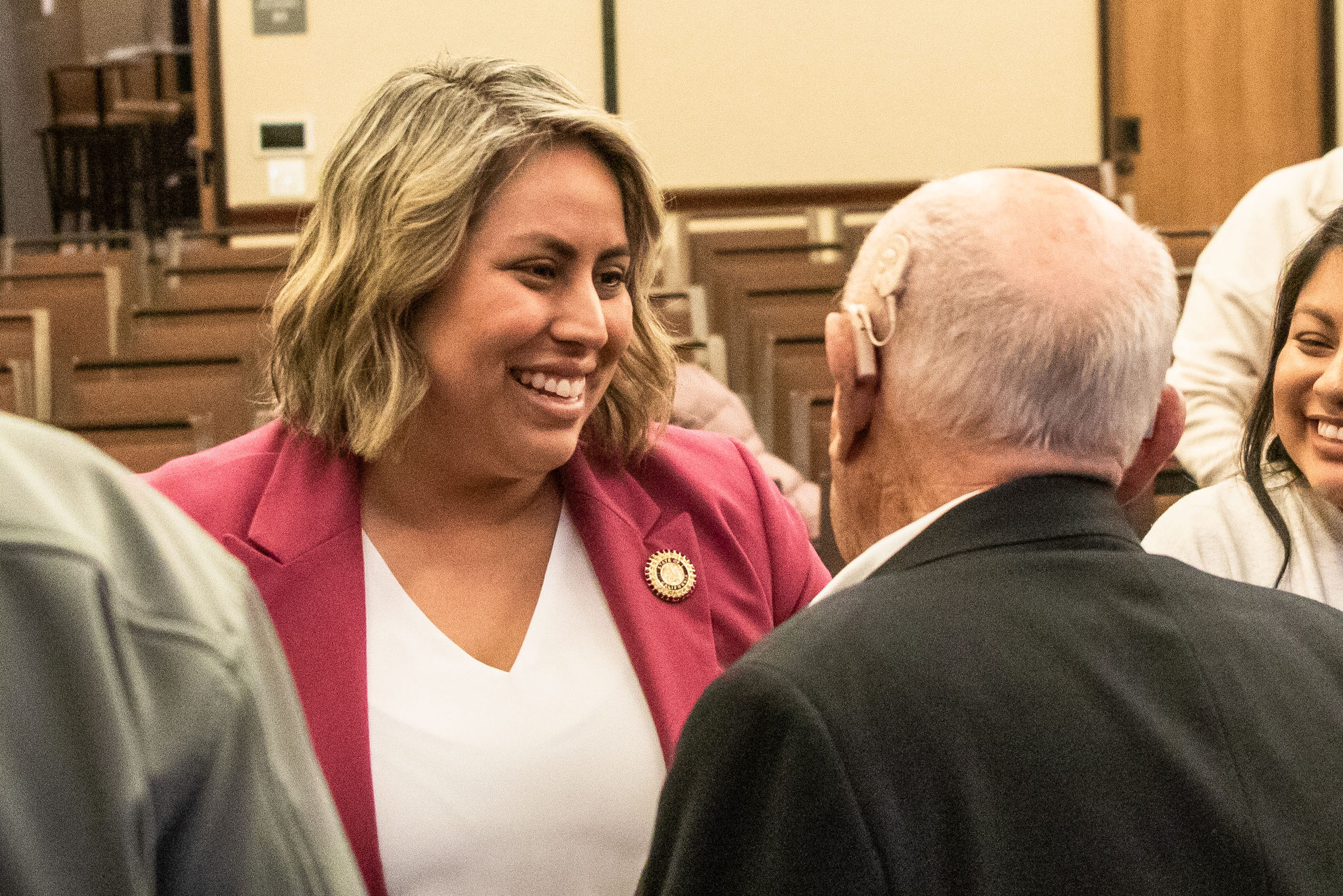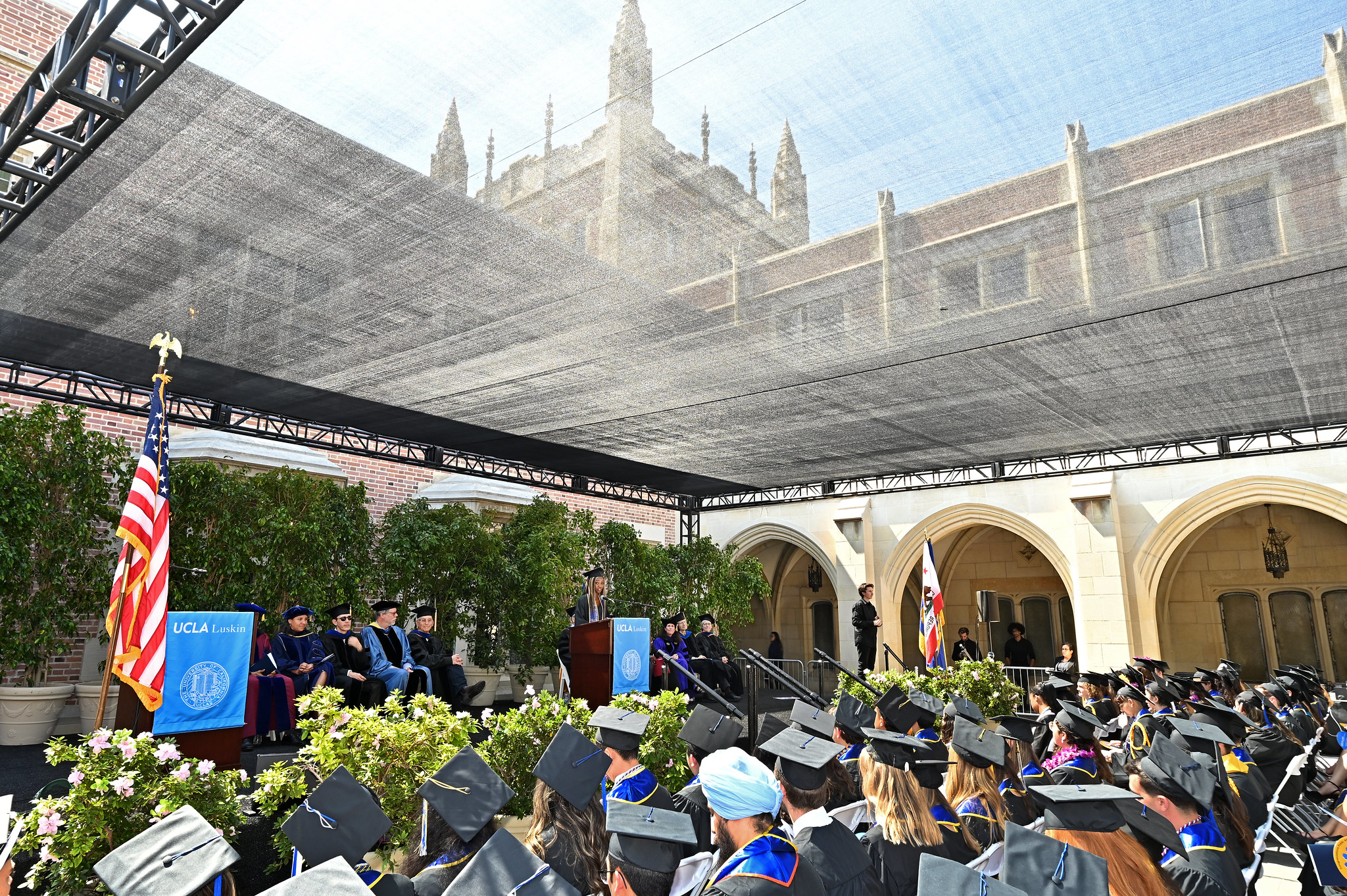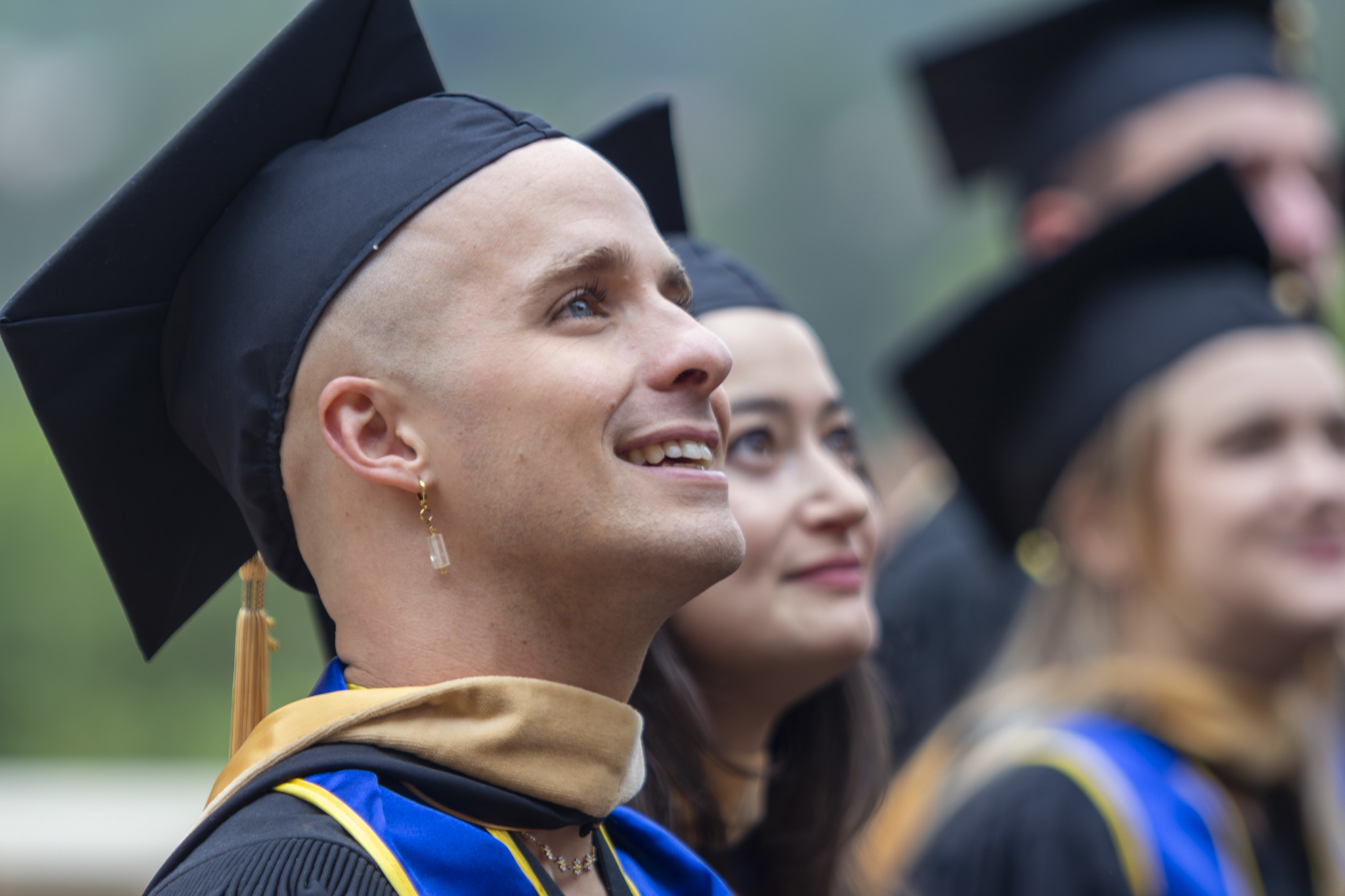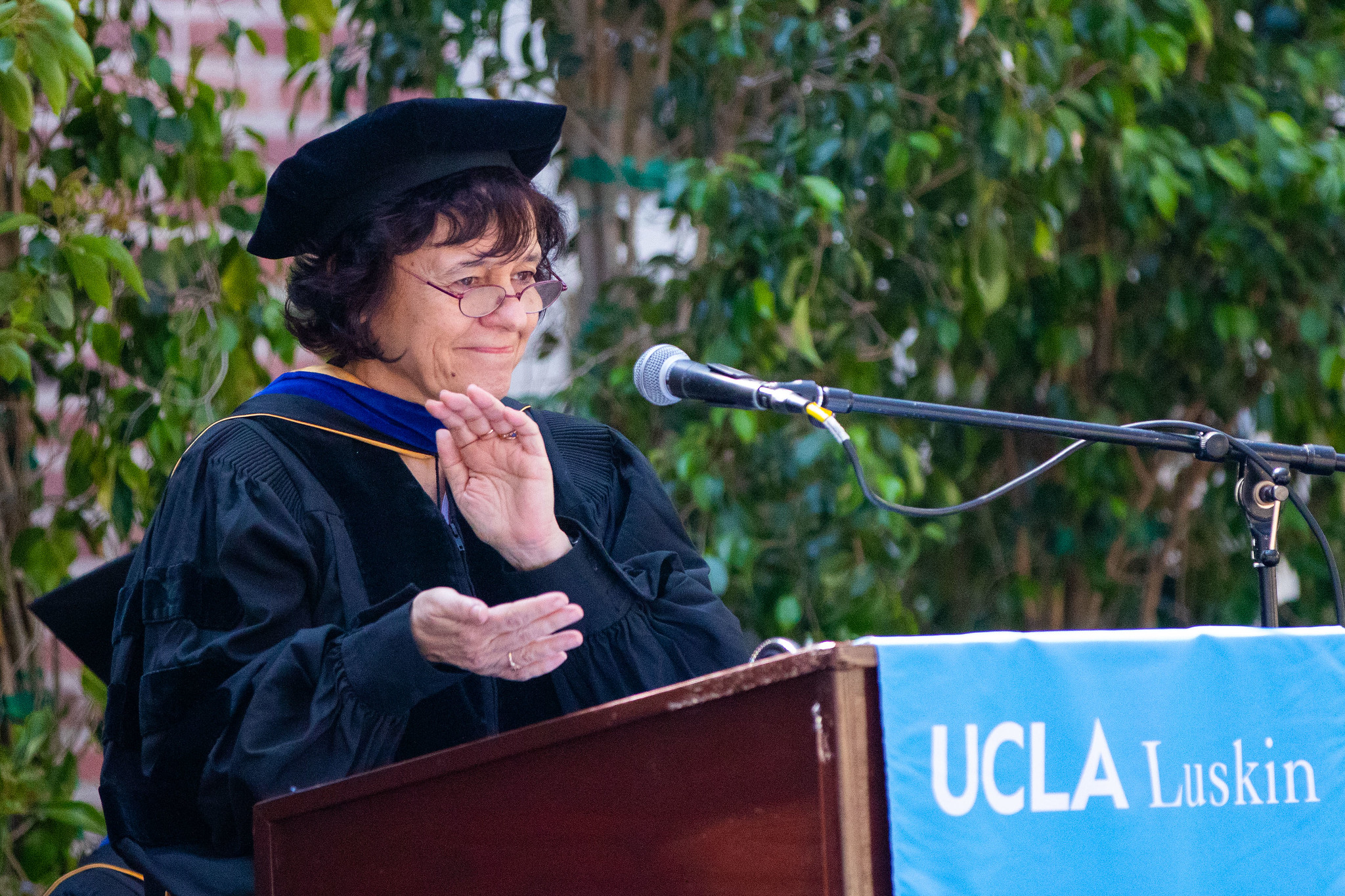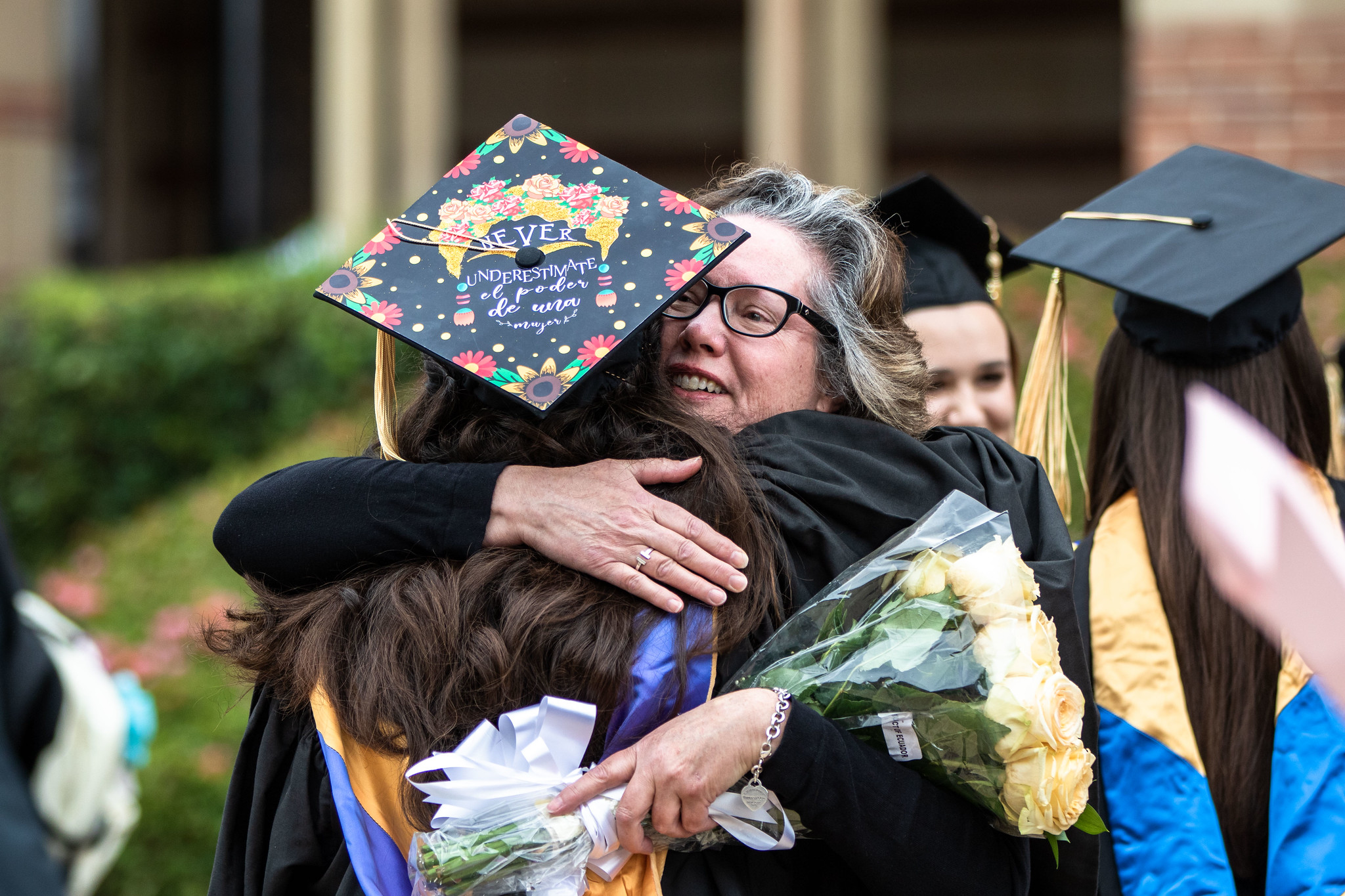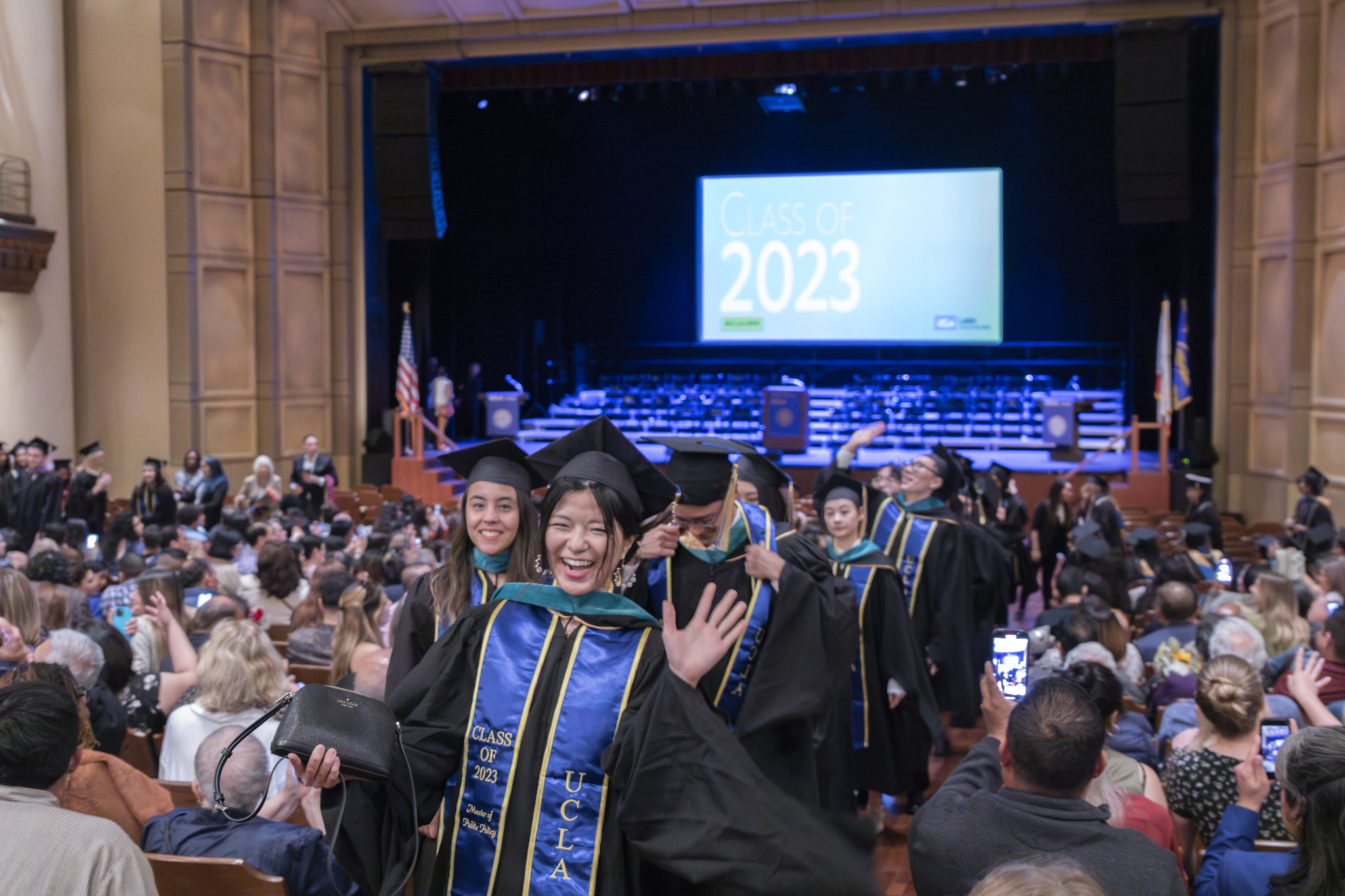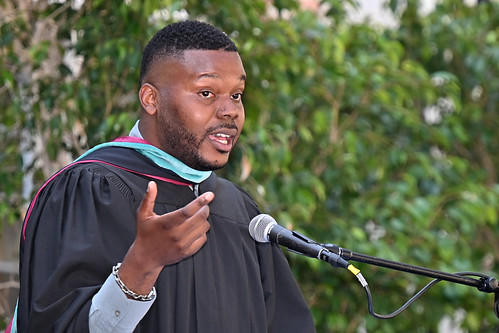UCLA Partners With New Independent Commission for Climate-Resilient Fire Recovery Experts will provide L.A. civic leaders with research-informed policy options for building safer, more resilient communities
By Jason Islas
Los Angeles County Supervisor Lindsey Horvath and UCLA Chancellor Julio Frenk announced that UCLA will provide its world-class research expertise and programmatic support to an independent commission tasked with developing policy recommendations to guide a safe and resilient recovery for Los Angeles in the wake of the 2025 wildfires.
“The commission we are announcing is a terrific example of our university and its partners in the region working together,” Frenk said at a Feb. 13 news conference. “UCLA is not just a university in Los Angeles. It is a university of Los Angeles. Today’s blue-ribbon commission answers that call to action, and we are pleased to partner with Supervisor Horvath on this important initiative.”
“Los Angeles County cannot afford to simply rebuild what was lost — we must build for the future,” Horvath said. “This is our opportunity to rethink how we design communities, fortify infrastructure, and protect lives from the growing threats of the climate crisis. The blue-ribbon commission will ensure that we lead the way in creating fire-safe, climate-resilient communities that will stand for generations. Our communities are invited into this process led by Los Angeles’ leading experts across academia, urban design and sustainability, environmental justice, housing and finance.”
UCLA’s advisors will be led by Megan Mullin, faculty director of the Luskin Center for Innovation, in consultation with Julia Stein, deputy director for the Emmett Institute on Climate Change and the Environment at UCLA School of Law, and in partnership with Alex Hall, director of the Sustainable LA Grand Challenge. They will marshal UCLA’s expertise to bring objective, research-informed insights and innovative options to a commission of more than a dozen respected civic leaders, chaired by Los Angeles Cleantech Incubator CEO Matt Peterson, to inform their policy recommendations for L.A.’s future.
“Our region has always lived with fire, but our communities weren’t built for the climate-induced mega-fires we see now,” Mullin said. “We have a short window of opportunity to not only rebuild homes and businesses but also to create more resilient and equitable communities.”
The commission will develop recommendations focused on:
- Fire-safe reconstruction: Implementing fire-resistant materials, defensible space strategies and climate-smart building standards.
- Resilient infrastructure: Undergrounding utilities, expanding water storage and conveyance, and hardening power grids.
- Faster rebuilding: Identifying resilient home designs and systems that could be pre-approved to expedite reconstruction, and offering financial incentives to support rebuilding.
- Equitable recovery: Reducing the risk of displacement, ensuring affordable insurance and prioritizing support for vulnerable communities.
“An uncoordinated race to rebuild will amplify inequality and leave people at risk of future fires. This commission seeks to change that with thoughtful, data-driven policy solutions to build resilient communities for the future we’re facing,” Mullin said.
Hall, who launched the Climate and Wildfire Research Initiative through the Sustainable LA Grand Challenge to develop knowledge, tools and new modes of thinking to confront Southern California’s rapidly evolving wildfire challenge, said, “Los Angeles is at a turning point. This commission is a generational opportunity for UCLA to provide L.A. civic leaders with the expert knowledge — drawn from years of rigorous research — they need to create the policies that will shape the region for decades to come.”
“The world is watching to see how L.A. comes back from these devastating fires; it is hard to overstate the historic importance of this moment — and the role our university will play,” Hall said.
Participating UCLA faculty include:
- Emmett Institute on Climate Change and the Environment: Mary Nichols
- Luskin School of Public Affairs: Anastasia Loukaitou-Sideris, Evelyn Blumenberg, Greg Pierce, Mike Lens, Paul Ong, Minjee Kim, Liz Koslov
- School of Architecture and Urban Design: Dana Cuff, Stephanie Landregan
- Ziman Center for Real Estate: Stuart Gabriel
- Institute of the Environment and Sustainability: Stephanie Pincetl, Aradhna Tripati
- UCLA Labor Center: Saba Waheed
- Fielding School of Public Health: Wendy Slusser
A portion of this effort is supported by a grant from the California Community Foundation and in-kind support from UCLA.
